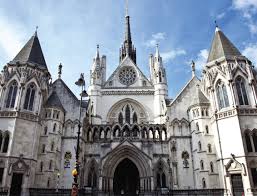By Libya Herald reporter.

The LIA holds $67 billion in assets spread around the world and control is claimed by Hassan Bouhadi and Abdul Magid Breish.
Bouhadi, who is bringing the case before London’s High Court, argues that he is the rightful chairman because he was appointed by the internationally-recognised government of Prime Minister Abdullah Al-Thinni, based in Beida.
Based in Tripoli, Breish insists the LIA is independent of government control, that neither Thinni nor the House of Representatives can sack him and that he therefore remains chairman, having moreover been backed up by a Libyan court ruling.
The case, asking the High Court’s Commercial Division on Wednesday to settle who has the ultimate authority to appoint the Board of Directors managing LIA assets in the UK, was forced by an earlier London court case on appointing a receiver to deal with litigation in proceedings involving Goldman Sachs and Société Générale. The judge in that case ruled that the issue of authority had to be resolved.
It also comes amid rising tension over control of not just the LIA but the Central Bank of Libya (CBL) and the National Oil Corporation (NOC).
Bernardino Leon, the United Nations Special Mission to Libya envoy, told a Spanish newspaper earlier this year that the CBL, LIA and NOC should be “independent” of any government. He has yet to outline how this would work in practice. For instance, if they are independent, how could their bosses be replaced? Would they be free to do as they liked and, if not, who would set their guidelines if no government were allowed to do this?
Leon will point out that the simplest solution for the ownership issue is for all Libyan parties to accept his proposed unity government plan, which would bring all sides together. Appointments to sovereign institutions such as LIA and NOC could then be re-made.
Normally, as far as the London case goes, the rules are simple. The UK confers recognition status on a government, meaning that it has decided that a particular government is in charge of a particular state. UK courts will then rule that this government owns that state’s UK assets. Belgium’s recognised government, for instance, controls UK-based assets of the Belgian state.
The Thinni government, being the internationally recognised one, will be hoping that the same is true of Libya. Whatever the result of the case, unlikely to be heard before next year, it may act as a guide for other courts and possibly other states in determining who is the legitimate government of Libya.
One complication could be the recognition status itself: the House of Representatives mandate ends in late October, after which outside states may decide to change recognition status, although none have commented publicly on this.
While the UK case will look at who is the rightful controller of the LIA from a legal standpoint, recognition status itself is a largely a political decision. The UK government like any other government can choose to recognise whoever it wants as Libya’s rightful government, or even refuse to recognise anyone, and to change that status at any time.
Another complicating factor could be the United Nations, which froze Libyan assets during the 2011 revolution, and has kept some frozen ever since. The UN Security Council could place a wide range of restrictions on Libya’s assets and the institutions that hold them, as it did during the Iraq oil-for-food programme. No such action has been suggested so far by the UNSC.
One thing is certain: Libya’s present woes are pushing the whole question of international recognition status to new legal frontiers.
![]()
[/restrict]






